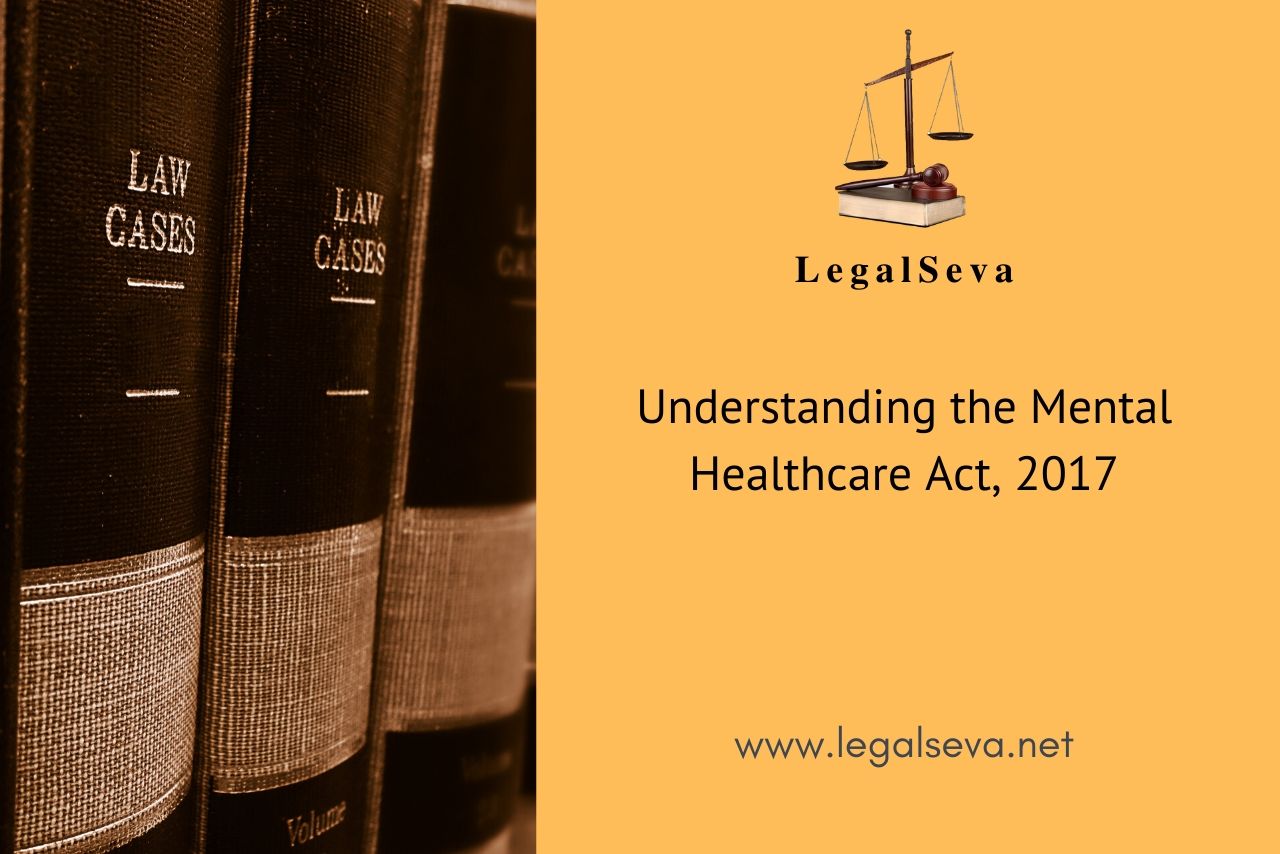Last Updated on June 21, 2024 by Satish Mishra
This article aims to provide a basic understanding of the Mental Healthcare Act , 2017 for which the President has given his Assent to.
The Mental Healthcare Act, 2017 comes as a welcome change in the legislative framework , and the optimistic outlook change of society towards the “Mentally-ill”.
A drastic revamp and change from the earlier legislation of Mental Health Act, 1987.
THE MHCA,2017 aims to fundamentally :-
- Eliminate discrimination in providing care to anyone that needs Mental Healthcare, and gives everyone equal right to access, irrespective of sex, sexual orientation, political beliefs etc.
It also as a major step, prohibits discrimination of mental health services from other general health facilities , and directs equality of facilities and recognition - It depicts an outlook change in the eyes of Parliament,
in line with the International Conventions and Standards ,
and most importantly recognises Mental illness in par with all other illnesses. - It provides a Number of Rights to the Mentally Challenged
(a) Right to live in Society, and not be segregated
this right allows him/her to continue staying in the same house , even if he/she is neglected or disowned by the family. The government will provide free legal aid in this regard to enforce his/her right.
(b) Right to Information
Right to know information regarding admission to such establishment,
Right to apply to the Board to review such admission
and the right to confidentiality of such admission and of such mental condition.
(c) Right to refuse or receive visitors
(d) Right to free legal services and free legal aid to exercise any right given under this Act.
(e) Right to issue an Advance directive
The advance directive , is a directive for any future incident issuing directive for
1. the way the person wishes to be cared for and treated for a mental illness;
2.the way the person wishes not to be cared for and treated for a mental illness
3.the individual or individuals, in order of precedence, he wants to appoint as his
nominated representative
(f) Right to access Mental healthcare to all, at affordable costs and of a standard acceptable by the patient or the care-givers
(g) It provides for medical insurance for Mental Illness.
it further directs all insurance companies –
Every insurer shall make provision for medical insurance for
treatment of mental illness on the same basis as is available for treatment of physical illness
Influence of the Mental Healthcare Act, 2017 in bringing about
revolutionary legislative changes-
Multiple references to Mental Healthcare Act, 2017 in the Judgement deeming
Section 377 of the Indian Penal Code Unconstitutional.
References –
- A recent enactment, namely the Mental Healthcare Act, 2017, throws a great deal of light on recent parliamentary legislative understanding and acceptance of constitutional values as reflected by this Court’s judgments.
Section 2(s) of the Act defines mental illness, which reads as under:
“2(s) “mental illness” means a substantial disorder of thinking, mood, perception, orientation or memory that grossly impairs judgment, behaviour, capacity to recognise reality or ability to meet the ordinary demands of life, mental conditions associated with the abuse of alcohol and drugs, but does not include mental retardation which is a condition of arrested or incomplete development of mind of a person, specially characterised by sub-normality of intelligence; - We are afraid that, given the march of events in constitutional law by this Court, and parliamentary recognition of the plight of such persons in certain provisions of the Mental Healthcare Act, 2017, it will not be open for a constitutional court to substitute societal morality with constitutional morality, as has been stated by us here in above.
- Medical and scientific authority has now established that consensual same sex conduct is not against the order of nature and that homosexuality is natural and a normal variant of sexuality. Parliament has provided legislative acknowledgment of this global consensus through the enactment of the Mental Healthcare Act, 2017. Section 3 of the Act mandates that mental illness is to be determined in accordance with ‘nationally’ or ‘internationally’accepted medical standards.
- The Act through Section 18(2) and Section 21 provides for protection against discrimination on the grounds of sexual orientation.
By coming into effect, it has in many ways Repealed Section 309 of the Indian Penal Code , as it presumes “severe stress” and also assigns duty on government to provide care
- Section 115 of the Mental Healthcare Act
115. (1) Notwithstanding anything contained in section 309 of the Indian Penal Code any person who attempts to commit suicide shall be presumed, unless proved otherwise, to have severe stress and shall not be tried and punished under the said Code.(2) The appropriate Government shall have a duty to provide care, treatment and rehabilitation to a person, having severe stress and who attempted to commit suicide, to reduce the risk of recurrence of attempt to commit suicide.
After getting acquainted with the various changes brought about the act, it is easy to say that the Mental Healthcare Act, 2017 is therefore a major step by the Government in the right Direction.
This post is written by Alex Pulimood. For more info on the subject, please dial 99888-17966.
